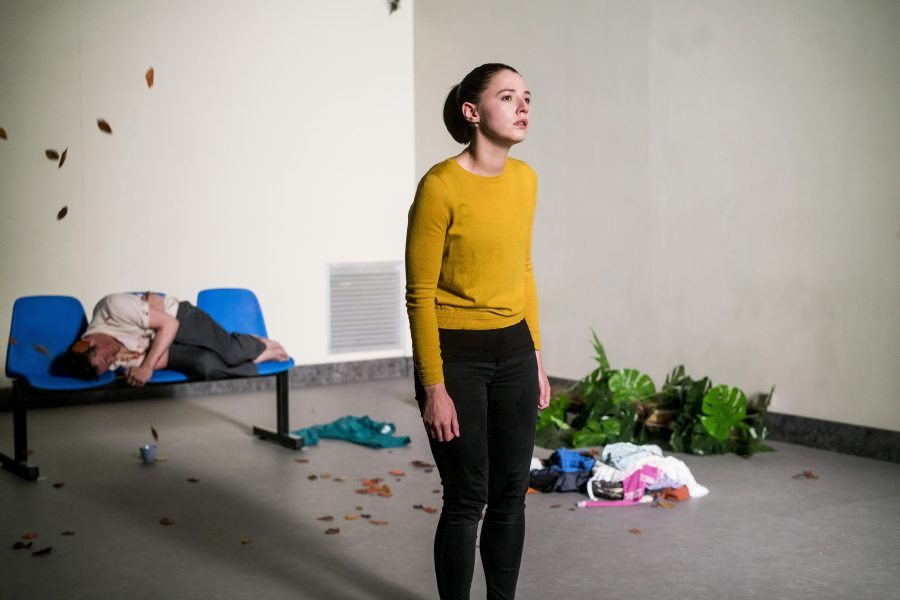

Enda Walsh wants to mess with your mood swings by creating non-linear, atmospheric works for you to interpret. It is entirely up to you what you make of it. Walsh will not hold himself responsible. The emphasis, or so it seems, is on how it makes you feel as opposed to what you might think about piecing together a plot.
Landmark Productions along with Galway International Arts Festival have brought Enda Walsh to NYC, presented here by St. Ann’s Warehouse and the Irish Arts Center. His play Arlington resides in the Brooklyn-based warehouse, while his theatrical installation Rooms has temporary squatter’s rights in a former auto service and repair shop at the site of IAC’s future home in Hell’s Kitchen. Among Walsh’s many successes, his recent notable works include writing the book for Lazarus, his stage musical collaboration with David Bowie. For a variety of reasons, a different kind of kudos became readily available with this project, perhaps encouraging the multiplex of design available here.
Eavesdropped chatter on the way out of Arlington suggests that a fair amount of audience interpretation straddles a medieval rack, shaped like a question mark. It’s a tough call, following dialogue snippets of dream-like rhetoric with a non-flashy flash of dance. Or movement. Or girl on stage action. Or slapstick. Walsh binges himself on multiple loose theatrical forms and multi-media formats, all expertly done, but the clang made when they all come together can make more noise than sense. At times. At other times, the raw emotion is astonishing, particularly Oona Doherty’s middle segment dance as the Young Woman. Who exactly the Young Woman is doesn’t matter apparently, but the desperation and isolation of enforced loneliness is abundantly clear in the frenzied recklessness of her every move.
Amidst hard times, the done thing in creativity is to visit dystopian isolation. There’s a sense that whatever Walsh is doing here is far less political than it is personal, giving him free rein. But this is very much a collaborative effort where sound design (Helen Atkinson), musical composition (Teho Teardo), set design (Jamie Vartan), choreography (Emma Martin), lighting (Adam Silverman) and video design (Jack Phelan) should be as highly credited as Walsh’s writer/director role. Arlington has in it the Beckett echoes of Misterman and the slapstick acrobatics of Ballyturk, Walsh’s last two plays starring Cillian Murphy. The void that Walsh has created in Arlington deliberately prevents character development. “What passes as life. The exhaustion of it.” Isla and the Young Man barely know themselves.
Each of IAC’s Rooms allows immersive rifling and snooping before and during the audio. In A Girl’s Bedroom (featuring the voice of Charlie Murphy), a young woman recalls the isolation of her childhood and her parents' presence below her bedroom floor. The cozy toy-laden setting provides a launch pad for her long and lonely walk. Kitchen (featuring the voice of Eileen Walsh) gives us a room in disarray, the level of which is available to those who dare to open the cupboards and washing machine door. A fast-speed monologue from a disillusioned woman at breaking point betrays her unfulfilled childhood dreams of a “comfortable house with a nice kitchen.” It is Room 303 (featuring the voice of Niall Buggy) that is the standout piece. A dying man in a poky hotel room focuses on the futility of his lot, personified by an annoying fly. Buggy’s delivery of Walsh’s words is beautifully poignant and droll, a playwright’s dream. "Surprisingly, it was never my intention to play out my last days being stared at by a fat blue bottle in a shitty hotel room.”